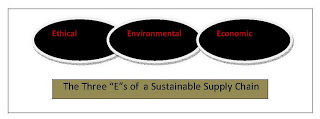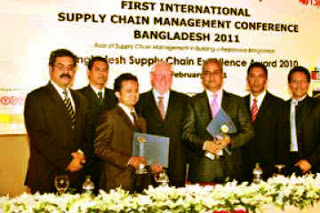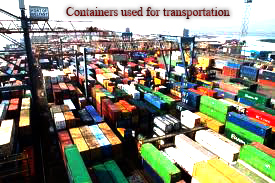Introduction: Would like to share a Supply Chain Management (also other events) with you initiated by Mind Mapper: Upcoming Training – Mind Mapper Bangladesh These upcoming programs may not directly supply chain Management training. But indirectly, they will enhance the supply chain management no doubt. These programs are such as “Time and Stress Management”, “Effective Negotiation Skills”, “Great people great habits”, “Communication Secrets” etc. For “Time and Stress […]
Archives
About Supply Chain Sustainability: A Brief Study
Introduction: While discuss about Supply Chain Management Network Design the business issue of Supply Chain Sustainability is included by high level executives. Supply Chain Sustainability is affecting an organization’s logistic and Supply Chain Network in terms of environment, risk and cost of wastes. This is considered essential to deliver long term profitability instead of monetary cost, speed and value as dominant issue. There is a […]
About Supply Chain Management Certification Programs:
Introduction: According To Some Scholars, Skills/Competencies Of Supply Chain Professionals Are Technical Proficiency In Some Discrete Areas, Such As, Familiarity With Logistics, Warehousing Equipments, Distribution Centers, Freight Issues Etc. Key Supply Chain Professional’s Skills /Competencies Include Global Orientation, Knowledge About Various Systems, And Leadership Issues. And Superior Business Skills.At The Minimum Level, They Should Have An Understanding Of Business Continuity Basics/Organization’s Business Continuity Approach And Strategy. Roles/Responsibilities […]
About Supply Chain Drivers:
Logistical drivers in a supply chain include facilities, inventory, and transportation, while cross-functional drivers include information, sourcing, and pricing. Facilities store and process inventory, while transportation moves it. Information analyzes inventory, transportation, and facilities, while sourcing determines internal or outsourced functions. Pricing determines the price of goods and services.
What are the objectives of a typical supply chain?
Supply chain management aims to maximize the overall value generated by the supply chain, which is the difference between the final product’s worth to the customer and the costs incurred in fulfilling their request. This value is strongly correlated with supply chain profitability, which measures total profit shared across all stages.






